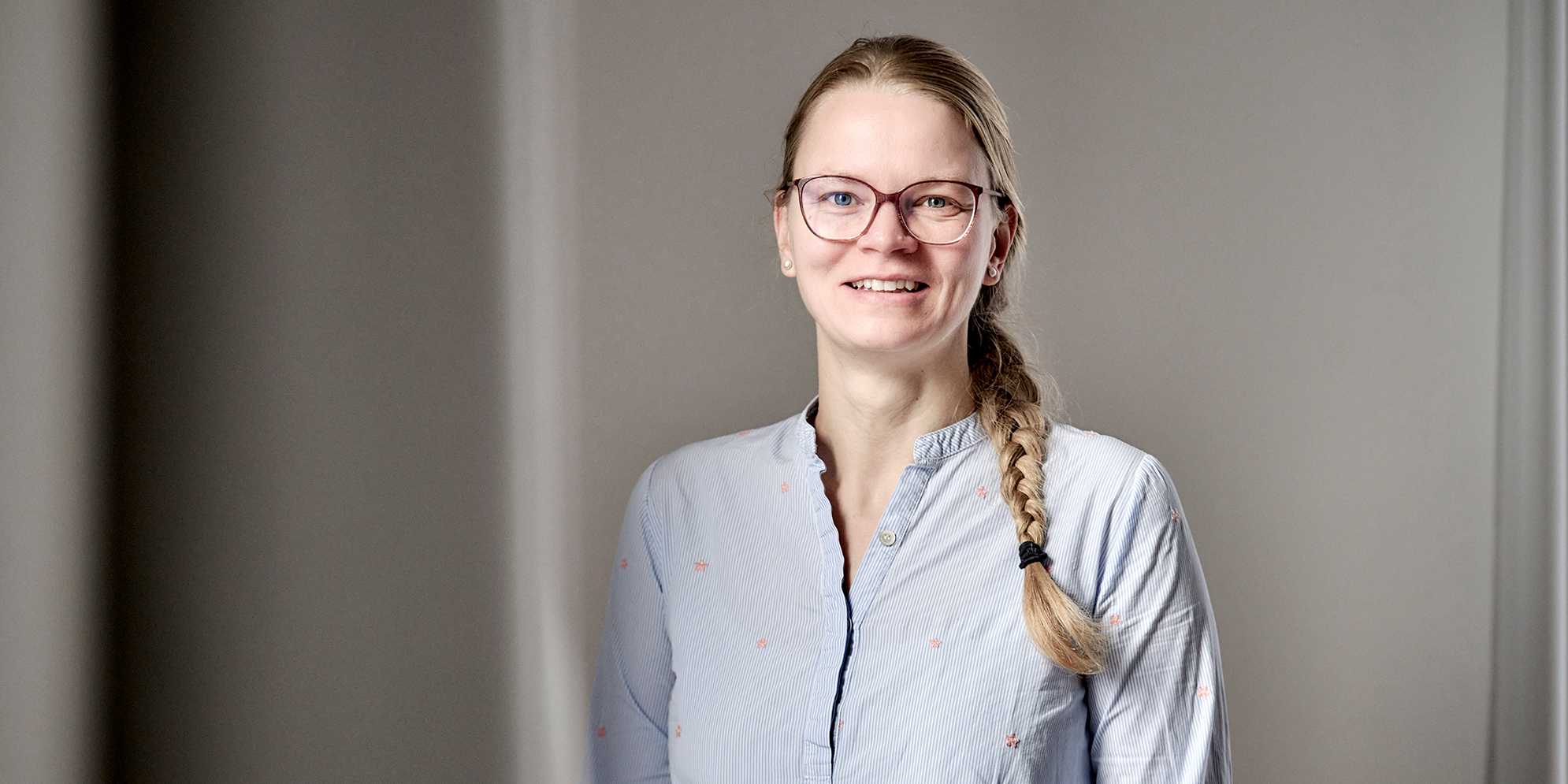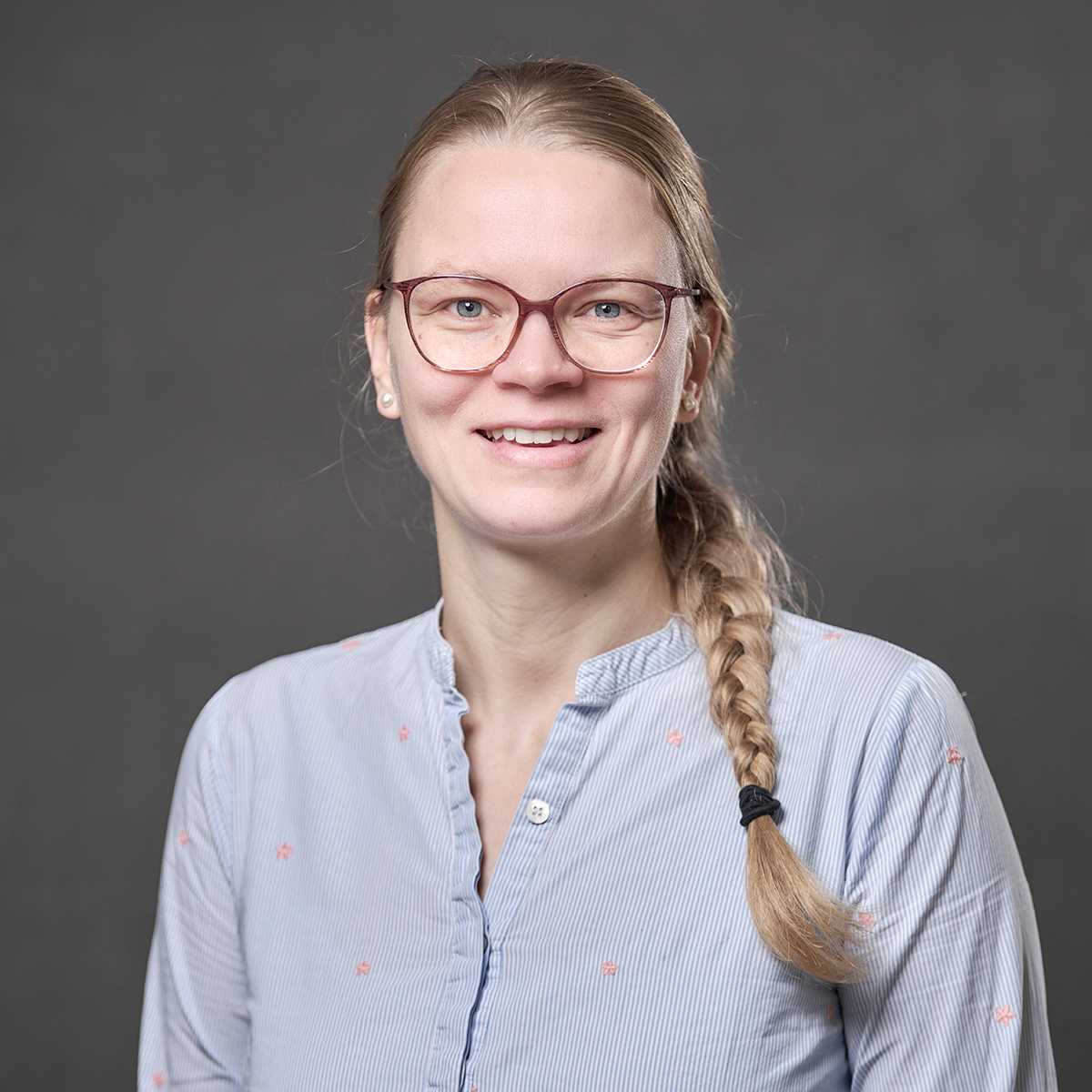"Make contributions to better decision making"
Johanna Ziegel has been a full professor of statistics since 1 January 2024. Her research at the intersection of statistics, risk management, financial mathematics, and interdisciplinary data sciences revolves around forecasting in a broad variety of contexts – and provides mathematical tools to tell when a prediction is "good".

Every day we come across forecasts, be it about stock markets, traffic flows, or, of course, the weather. Whether a given prediction turns out to be accurate, only time can tell. But how reliable will the next prediction be? Johanna Ziegel works towards providing an answer to this question: "My work focuses on objectively assessing the quality of forecasts," she says. The origin of these predictions is not necessarily at the centre of attention. "If my next-door neighbours can consistently produce better weather forecasts than a meteorological institute, then I do not care how they do it – as long as I can rigorously show that they are indeed 'better'."
Evaluating and comparing forecasts
But what does "better" mean in this context? There are several aspects that determine the quality of a forecast. An important component is not just predicting whether an event will occur – will it rain or not – but quantifying the uncertainties. For quantities such as temperature, we are already used to seeing ranges of uncertainty around temperature forecasts in our weather apps. Providing informative uncertainties for, say, extreme weather events such as floods and heat waves is considerably more challenging. Developing methods to deliver reliable, calibrated quantifications for such problems is one of the goals of Ziegel's current research.

“My goal is to make contributions to better decision making. Our research on the objective evaluation and comparison of forecasts is therefore often linked to the modelling of rare phenomena such as extreme weather events, and to data analysis.”Johanna Ziegel
Another challenge is to ensure that forecasts can be compared objectively. A highly relevant example is financial risk management, and in particular the comparison of different risk-estimation procedures. These methods contribute to how financial institutions deal with internal risk management, but also inform regulatory frameworks such as the Basel Accords. In this area, Ziegel and her colleague Natalia Nolde published in 2017 a much-acclaimed paper in which they introduced an innovative method for comparing estimated loss distributions of financial portfolios, thereby enabling an objective assessment of different risk-estimation methods.
The connection to real-world problems is important to Ziegel: "My goal is to make contributions to better decision making. Our research on the objective evaluation and comparison of forecasts is therefore often linked to the modelling of rare phenomena such as extreme weather events, and to data analysis." A recent example in the latter category is an analysis in which she studied, together with an interdisciplinary team of collaborators, how long individual COVID-19 patients stayed in Swiss intensive-care units. The ability to provide early predictions about the expected length of stay helps to improve resource allocation and patient care.

A return to the alma mater
This breadth of interests is also reflected in Ziegel’s scientific career so far. After graduating in mathematics from ETH Zurich in 2006, she stayed on for her doctoral research on the stereological analysis of spatial structures – which has applications in microscopy, spatial surveys, and image analysis – under the joint supervision of Paul Embrechts and Eva B. Vedel Jensen (Aarhus University, Denmark). She obtained her doctoral degree in 2009 and then moved to the University of Melbourne (Australia) and the University of Heidelberg (Germany). During this time, she made important contributions to the theory of positive definite functions and to statistical prediction theory, the latter becoming her main research interest. In 2012, she started as a tenure-track assistant professor of applied stochastics at the University of Bern. She was promoted to associate professor in 2018 and to full professor in 2023, before returning to ETH Zurich this year. Since 2021, she has also been a visiting scientist at the Heidelberg Institute for Theoretical Studies.
During her time in Bern, Ziegel was a member of the Scientific Advisory Board of the Oeschger Centre for Climate Change Research (OCCR) at the University of Bern. She has also served on the Council of the Bernoulli Society, and is currently a member of the editorial boards of Bernoulli, JASA: Theory & Methods, the Journal of Financial Econometrics, the International Journal of Forecasting, and the SIAM Journal on Financial Mathematics.
A committed communicator
In addition to her contributions to various fields of research, Ziegel is an enthusiastic teacher. In 2022, her commitment was recognised with the Credit Suisse Award for Best Teaching at the University of Bern, with the laudation highlighting not only her creativity and innovative concepts for interactive teaching and her efforts to bring out the significance of mathematics in the natural sciences, but also praising her friendly and respectful interaction with students and her dedication to promoting young academics. These qualities will be an important asset for her teaching at ETH.
Ziegel’s life outside mathematics is similarly characterized by a wide range of interests. In addition to being the mother of two children – "they teach me at least as much as academic research" – Ziegel is a representative on the Council of the Swiss National Accident Insurance Fund Suva, an avid sportsperson (currently mainly a cyclist, but in the past also a barefoot runner), and a person with remarkable language skills, speaking three of Switzerland’s national languages. A perfect basis, then, for many fruitful interactions at the Department and throughout ETH.